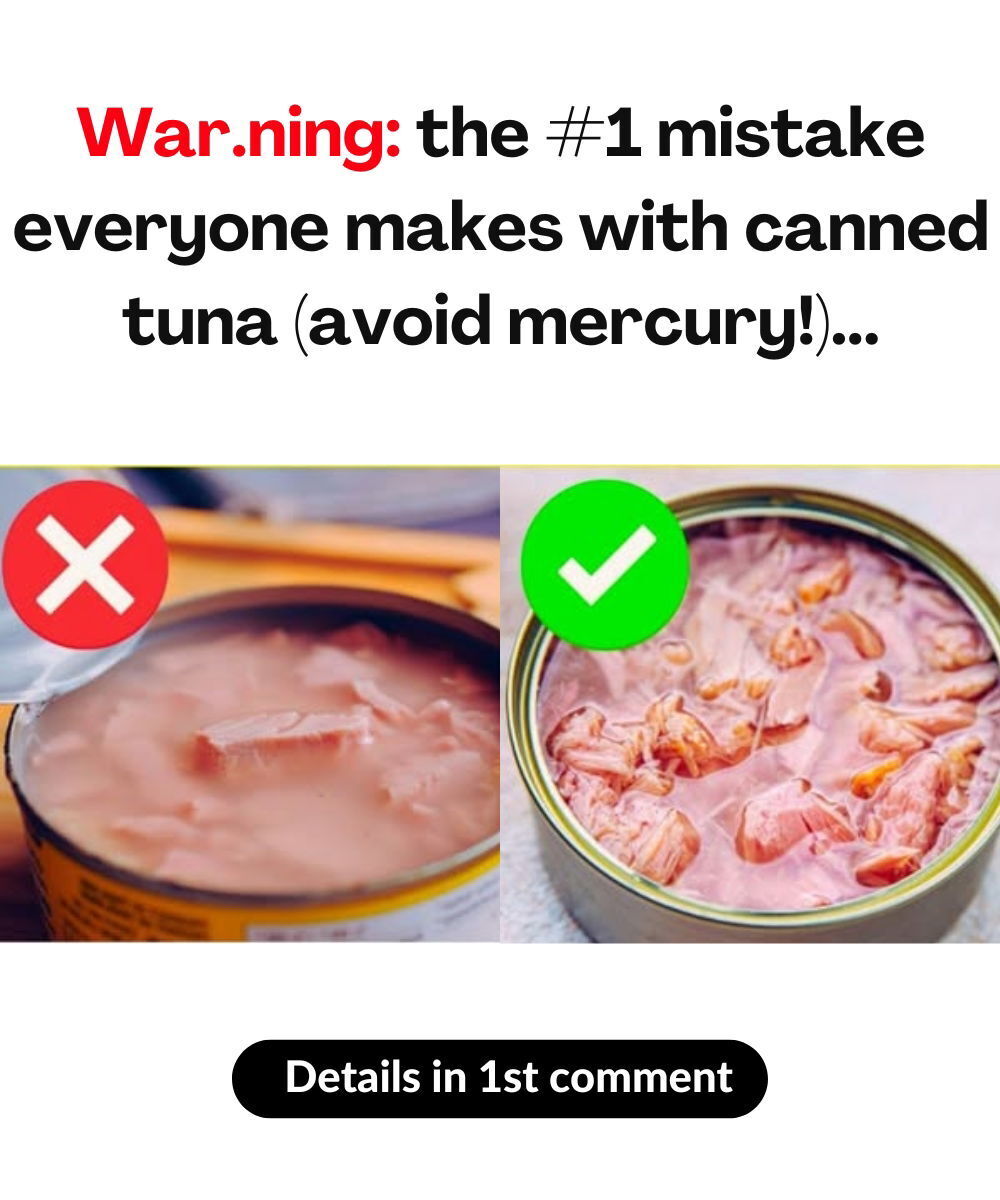Canned tuna is beloved for being budget-friendly, protein-packed, and incredibly convenient. But that humble tuna sandwich? It might carry more than just flavor—it could be hiding mercury, a toxic heavy metal that poses real health risks with repeated exposure.
And here’s the catch: not all canned tuna is created equal. Some varieties contain significantly more mercury than others, meaning your go-to snack could be exposing you to dangerous levels without you even knowing.
🔍 Why Is Mercury in Tuna?
Mercury is a naturally occurring element—but thanks to human activities like coal burning and mining, it’s now abundant in our oceans. Once there, it transforms into methylmercury, a potent neurotoxin that accumulates in marine life.
Tuna, being large predator fish, eat smaller contaminated fish and absorb higher concentrations of mercury through a process called bioaccumulation. By the time that tuna lands in your can, it could carry levels high enough to cause concern—especially for pregnant individuals, children, and those with heart or neurological conditions.
⚠️ The Big Mistake Most People Make
Choosing the wrong type of tuna.
Understanding the species makes all the difference:
| Tuna Type | Common Label | Mercury Level (ppm) | Safety Notes |
|---|---|---|---|
| Skipjack | “Light tuna” | ~0.12 | Safest for frequent consumption |
| Yellowfin | Sometimes “light” | ~0.35 | Eat occasionally |
| Albacore | “White tuna” | ~0.50 | Limit intake significantly |
📝 Tip: If your label doesn’t specify, it’s usually skipjack. Always double-check to be sure.
💡 More Tuna-Related Mistakes to Avoid
- Skipping the label: Some brands reveal more about mercury levels and sourcing than others. Do a quick online check before buying.
- Eating it too often: Experts recommend no more than 8 ounces of seafood per week—especially for sensitive groups.
- Improper draining: Whether packed in water or oil, draining the can properly helps remove excess contaminants (and avoids soggy sandwiches!).
🥫 Oil vs. Water: Which Is Safer?
You might think water-packed is the cleaner choice, but here’s the twist:
see continuation on next page
ADVERTISEMENT

